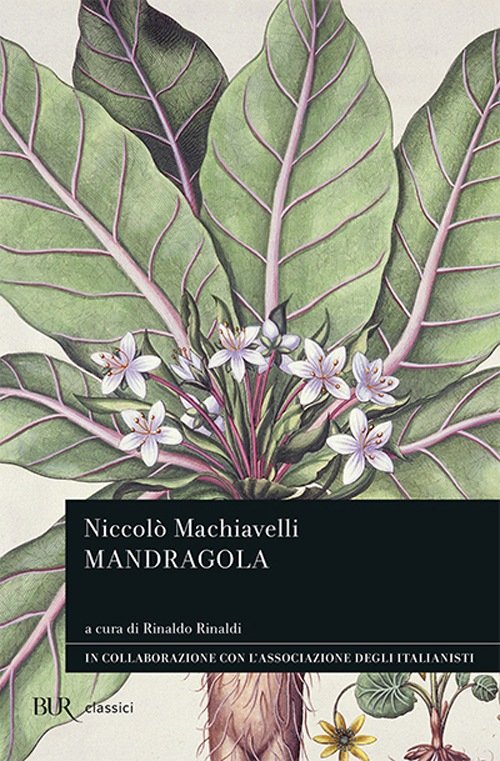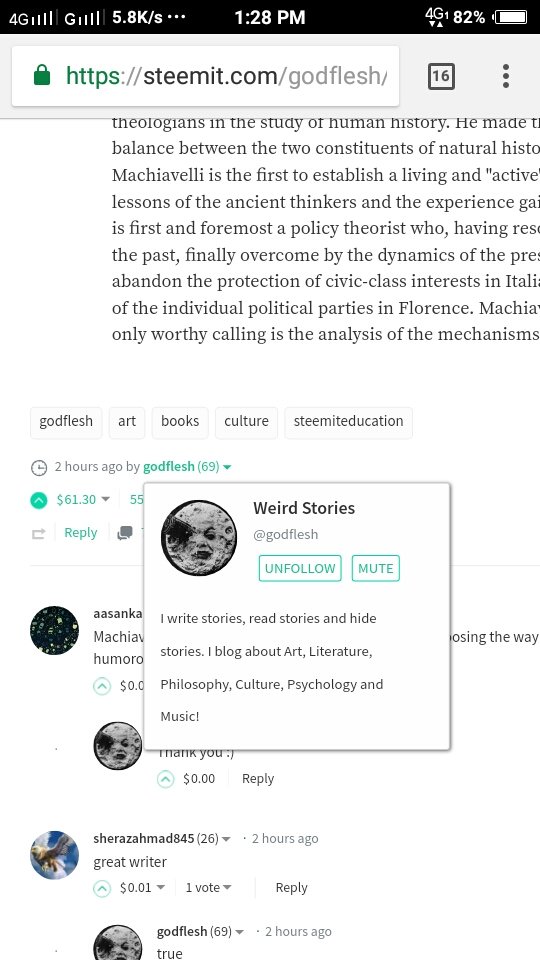When commenting on La Mandragola (1518), the obvious political nature of this comedy can not be ignored. It is manifested in moralizing without illusions, which brings us a pervasive analyst of the political situation then, well acquainted with the human "virtue", with the petty egotism of the fools and hypocrites. The sample borrowed by Bocaccio gives only a literal envelope the exact analysis of reality. As in other works and in this comedy, Machiavelli refuses to thoughtful reflections and does not feel obliged to treat his style patiently. For him the most important thing is the moment of awareness / understanding / of the truth. La Mandragola's intrigue is familiar: Kalimaho (the lover occupied by Boccaccio) fell in love after hearing about her merits in Lucrecia, the wife of old Dr. Nicholas, an unscrupulous fool stubbornly claiming no offspring because his wife is barren. The paragraph of Ligurio, who is the ultimate masterpiece of swindles, the confessor brother Timothy performing his mechanical duties, a petty crook without any remorse, and Sostra, the mother of Lucretia, an old "skillful" pimp, helped Calimano to achieve the goal by taking a clever use of a miraculous decoction. During the fateful night Lucretia gets to know the bitter and strong taste of "goodness" and turns the passive acceptance of the infidelity brought to her by "fate" to "pleasure" for pleasure. She is inclined to become a young man's mistress, and a stupid and naughty husband will be subject to the general mockery of this farce.
Ligurio and Lucrecia, as well as a greedy clergyman, are the most important, key characters in this comedy. They explain their behavior through the ethical principles of the writer, thanks to his ability to discover and uncover the essential characteristics of people - their "cravings and surprises." So it's hard to compare them with the characters of the old Latin comedy or with the actors in Decameron. Though the author follows to the smallest detail the comedy of Terencius' "The Woman of Andros" the realistic dialogues filled with dramatic tension and the inventive jokes typical of the Florentine tongue of the day help to create an original atmosphere in this comedy. Therefore, without pretending to be a perfect comedy, "La Mandragola" provides its status as a masterpiece in the history of the Italian comedy theater. In the late Renaissance, the ideologists of the republic, hostile to the Spanish Party and to the Roman Curia and then to the supporters of democracy through the Enlightenment, who opposed tyranny and supported the Revolution, firmly condemn the principles outlined by Machiavelli in his treatise "The Lord." They are more inclined to accept the theses of the ideal republic. According to them, Machiavelli was turning to the peoples, not to the tyrants. In the 13th century, Machiavelli was rediscovered as a prophet of the nation state, or as a theorist of the dictatorial state. He is honored as the writer who defines the main directions of modern politics, although he applies them to a closed, narrow space - the little Italian principality in which they run limited and cruel princes, protected by greedy and unbridled mercenaries.
Nevertheless, in the great period of the 16th and 19th centuries, Machiavelli remains the author, to whom all analysts of political disputes and battles refer. Scientists who study the foundations, logic, structure and stability of the modern state feel compelled to comment on the work of this Italian thinker from the High Renaissance. It is only shortly after that that critical thinking is about exploring Machiavelli's works from the inside - responsibly and objectively, from both a philosophical and a philological point of view. Serious research has become the personality and life part of Machiavelli, his contributions to the Italian culture in the 16th and 17th centuries, his influence on modern political science. Shaping opinions are often polar, too contradictory, especially with regard to his two major works. Nevertheless, the research on Machiavelli's life and creativity helps outline the main conceptual trends that have been made in his work. This Renaissance philosopher is accepted today as the first modern thinker who applies the principle of autonomy of science in the system building of knowledge, which has until then been fully guided and controlled by theologians in the study of human history. He made this coup by finding the right balance between the two constituents of natural history - realism and pessimism. Machiavelli is the first to establish a living and "active" connection between the lessons of the ancient thinkers and the experience gained in modern life. But he is first and foremost a policy theorist who, having resolutely turned his back on the past, finally overcome by the dynamics of the present life, hesitates to abandon the protection of civic-class interests in Italian city-states and ideology of the individual political parties in Florence. Machiavelli understands that his only worthy calling is the analysis of the mechanisms on which the State is built.

Machiavella made a great contribution in his writing! choosing the way he delivered his messages in the passion and humorous way is wonderful. Great post @godflesh
Downvoting a post can decrease pending rewards and make it less visible. Common reasons:
Submit
Thank you :)
Downvoting a post can decrease pending rewards and make it less visible. Common reasons:
Submit
Dear @godflesh! It was pleasure reading your text about this great work!
Downvoting a post can decrease pending rewards and make it less visible. Common reasons:
Submit
You are welcome :)
Downvoting a post can decrease pending rewards and make it less visible. Common reasons:
Submit
great writer
Downvoting a post can decrease pending rewards and make it less visible. Common reasons:
Submit
true
Downvoting a post can decrease pending rewards and make it less visible. Common reasons:
Submit
i am votes you post,so plz votes my post

my votes proof image
Downvoting a post can decrease pending rewards and make it less visible. Common reasons:
Submit
i see :)
Downvoting a post can decrease pending rewards and make it less visible. Common reasons:
Submit
good blog love to read @godflesh
Downvoting a post can decrease pending rewards and make it less visible. Common reasons:
Submit
You got a 10.11% upvote from @postpromoter courtesy of @godflesh!
Want to promote your posts too? Check out the Steem Bot Tracker website for more info. If you would like to support the development of @postpromoter and the bot tracker please vote for @yabapmatt for witness!
Downvoting a post can decrease pending rewards and make it less visible. Common reasons:
Submit
Curious, how many books do you read in a month?
Downvoting a post can decrease pending rewards and make it less visible. Common reasons:
Submit